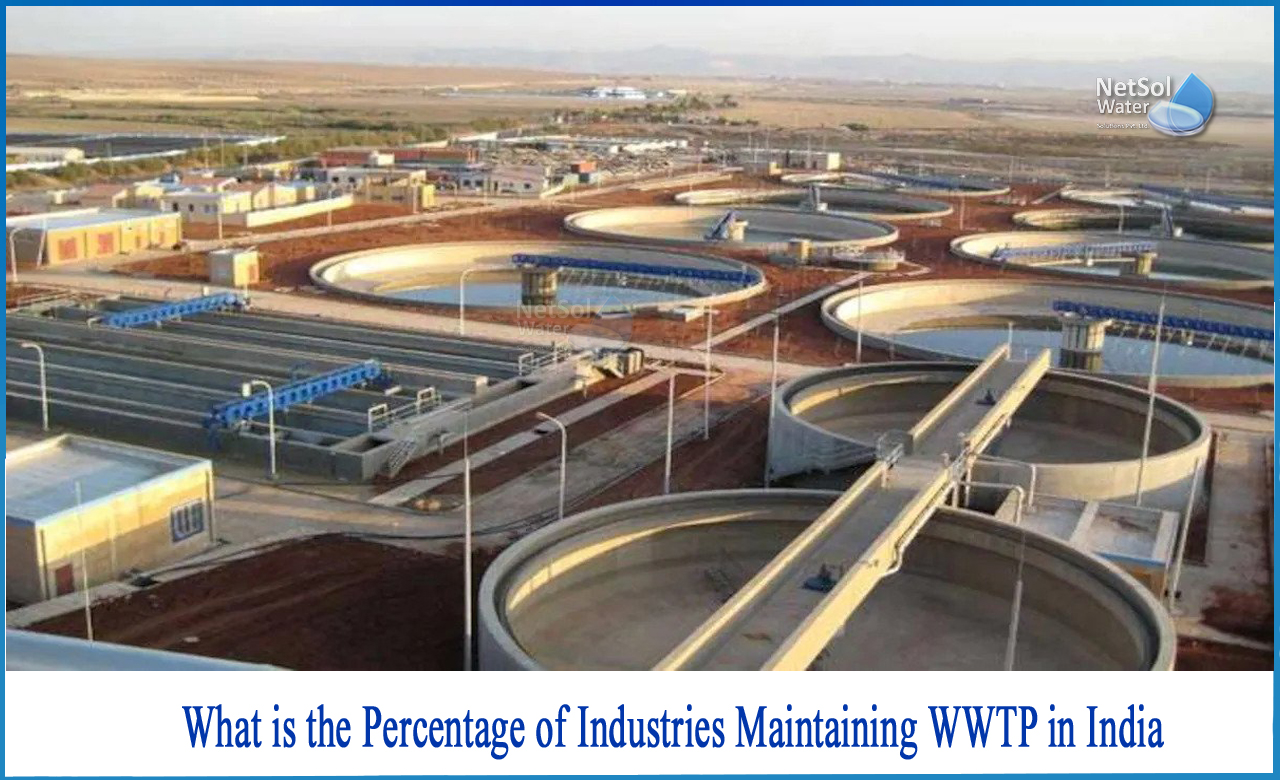What is the percentage of industries maintaining WWTP in India?
Almost 80% of the water supply is recycled into the ecosystem as wastewater. If not correctly managed, this can pose a serious environmental and health risk, but good management can assist water managers in fulfilling the city's water demand.
According to the Central Pollution Control Board's 2015 report, India now has the ability to treat around 37% of its wastewater, or 22,963 million litres per day (MLD), versus a daily sewage generation of approximately 61,754 MLD. Furthermore, most sewage treatment plants do not operate at full capacity and do not meet the required criteria.
Wastewater Treatment Plant Industries
1: Agriculture
Water is used in the agricultural business for tasks such as irrigation, cattle watering, and machinery washing. Due to the usage of fertilizers, agricultural wastewater frequently contains significant quantities of phosphate and nitrate pollutants, as well as chemical compounds from herbicides and pesticides. Specialized agricultural facilities also create wastewater with varying properties; e.g., effluent from dairy operations frequently contains dissolved sugars, fats, and additives.
Only 10% of waste water treatment plants in India are maintained by agricultural enterprises.
2: Automobile Manufacturing Industries
Automotive services, such as repair and maintenance businesses, create enormous amounts of liquid waste, which includes:
- Used oil
- Antifreeze
- Transmission and wiper fluid
- Detergent
- Grease
- Paints
- Solvents
- Water used for washing vehicle parts or flushing lines
This effluent cannot be dumped down the next sewer; it must be properly disposed of to avoid damaging local ecosystems.
Only 4% of India's waste water treatment plants are owned by automobile manufacturers.
3: Construction
The building sector creates a lot of rubble trash, but it also generates a lot of wastewater. Heavy construction equipment washing may create wastewater, which constructionorganizations must manage appropriately. The use of chemicals such as paints, solvents, and adhesives generate wastewater, which businesses must securely dispose of.
Only 16% of waste water treatment plants in India are maintained by the construction industry.
4: Food Production
Water is used in food processing to wash fruits and vegetables, as well as to wash away blood and organic waste after killing meat animals.Fruit and vegetable wastewater is typically benign; however, it includes significant levels of organic particle debris. Animal slaughter wastewater comprises organic waste such as blood, skin, and faeces, as well as high quantities of synthetic substances like as antibiotics and growth hormones.
Food processing industry account for barely 8% of waste water treatment plants in India.
5: Industrial Manufacturing
Various operations in industrial production facilities, such as iron and steel factories, create wastewater. Blast furnaces require vast volumes of cooling water, which can get polluted with waste products such as ammonia and cyanide. Water is also required as a coolant and lubricant in steel manufacturing operations.Manufacturing plants may also create significant volumes of oil waste in their effluent.
Industrial Manufacturing has the biggest percentage of waste water treatment plants in India, at 28%.
6: Oil and Gas Industries
The oil and gas sector, notably the extraction of oil and gas, produces wastewater in the form of cleaning water and oil waste. The residues left in tanks, as well as any water used to clean those tanks, must be appropriately disposed of. The water used to clean heavy equipment also becomes wastewater, which must be disposed of appropriately in accordance with local and federal standards.
Some waste oil may be recyclable. If this is the case, a reputable trash disposal business may assist oil and gas industries in discussing recycling possibilities for their waste.
In India, the oil and gas sectors own 23 percent of the waste water treatment plants.
7: Paper and pulp
The pulp and paper business consumes large amounts of water in its manufacturing operations – around 17,000 gallons every ton of paper. Water is extremely important during the bleaching process, although other chemicals like as acids and chlorine are also required. Contaminants in pulp and paper effluent include acids, chlorine, chloroform, dioxins, hydrocarbons, and phenols.
Only 13% of waste water treatment plants in India are owned by the pulp and paper industry.
Consulting with Netsol Water will provide you with the peace of mind that comes with being environmentally conscientious and competent when it comes to your water treatment plant and wastewater disposal. We provide complete solutions and services that allow you to focus on what actually matters: your core company activities, rather than trash management.
Netsol Water is Greater Noida-based leading water & wastewater treatment plant manufacturer. We are industry's most demanding company based on client review and work quality. We are known as best commercial RO plant manufacturers, industrial RO plant manufacturer, sewage treatment plant manufacturer, Water Softener Plant Manufacturers and effluent treatment plant manufacturers. Apart from this 24x7 customer support is our USP. Call on +91-9650608473, or write us at enquiry@netsolwater.com for any support, inquiry or product-purchase related query.



